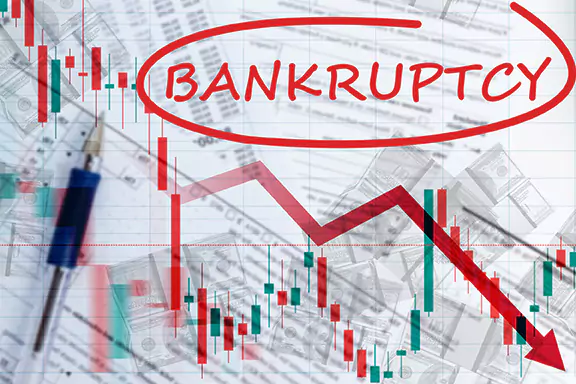Facing overwhelming debt can feel like standing at a crossroads with limited options.
Bankruptcy, often considered a last resort, can provide relief but at a significant cost to your credit score and financial freedom. It may haunt your financial steps for up to ten years, making it difficult to borrow money or even secure certain types of employment!
However, before taking this drastic step, it’s worth exploring alternatives that might not only preserve your own credit scores but also give you a renewed sense of control over your finances. This guide covers several viable options that could help you manage and eventually overcome your debt without filing for bankruptcy.
Contact a Credit Counseling Agency
One of the first stops on your path to financial recovery should be to call a certified nonprofit credit counseling agency. These agencies are equipped to provide professional advice tailored to your specific financial situation. When you connect with a certified credit counselor here, they will thoroughly review your financial picture, including your income, debts, and monthly expenses. This comprehensive review helps them understand your financial standing and guide you towards realistic and manageable solutions.
Credit counselors are trained to help you develop a budget that makes the most of your financial resources. They can also provide strategies for reducing expenses and increasing income, laying a foundation for stronger financial health.
The beauty of credit counseling lies in its dual approach: it not only helps you manage your current debt but also empowers you with financial education to avoid similar issues in the future. By choosing credit counseling, you’re not just patching a leak temporarily; you’re reinforcing your entire financial structure for years to come.
Consider a Debt Consolidation Loan
If you’re juggling multiple payments across various credit cards or loans, a debt consolidation loan could be a wise choice for you. This process involves combining all your existing debts into one loan with a lower interest rate, which means you only have one monthly payment to worry about instead of several.
There are a couple of ways to achieve this: through a personal loan or a balance transfer credit card.
Personal Loan
Taking out a personal loan to consolidate debt can simplify your payments, save money, and potentially reduce the amount of interest you pay over time. This could mean more of your payment goes towards reducing the principal rather than just covering the interest.
Balance Transfer
Alternatively, if your credit score is still in good standing, you might qualify for a balance transfer credit card that offers a 0% introductory interest rate. This allows you to move your existing balances to one card and pay down your debt without the burden of accumulating interest, at least for the introductory period.
Be careful not to restart adding debt to credit cards or vendors you paid off with the consolidation loan.
Add Your Heading Text Here
A debt management plan (DMP) is another solid option, especially if you feel overwhelmed by high-interest credit card debt. In a DMP, a credit counseling agency works on your behalf to negotiate lower interest rates and consolidated monthly payments with your creditors. Once an agreement is reached, you’ll make one monthly payment to the debt counseling agency, which then disburses payments to your creditors according to the agreed plan.
This approach not only helps reduce your debt load but also can help your credit report if you avoid the negative consequences of bankruptcy. It’s important to note, however, that enrolling in a DMP might require you to close your credit card accounts, which could impact your credit score by affecting your credit utilization ratio and the length of your credit history. Despite this, the effect is generally less severe than a bankruptcy filing.
Add Your Heading Text Here
Debt settlement should be considered if you’re dealing with considerable unsecured debt, like credit card debt, or payday loans that you can’t feasibly repay even with reduced payments. In this scenario, debt settlement companies negotiate with your creditors to allow you to pay a lump sum that’s less than the full amount you owe.
This option might sound appealing because it can significantly reduce your debt load, but it comes with risks. Ceasing payments while you accumulate funds for a settlement offer can severely damage your credit score.
Additionally, forgiven debt may be considered taxable income, so you could owe taxes on the amount forgiven.
Therefore, while debt settlement can provide relief from unmanageable debt, it’s crucial to fully understand the potential impact of debt payments on your financial health and credit score before proceeding.
Selling Assets
If you feel overwhelmed by debt, another option to consider is selling some of your assets. This method can provide quick funds to help pay down what you owe more rapidly. Look around your home for items you no longer need or use, such as electronics, jewelry, collectibles, or even a second car. Selling these items can make a significant dent in your debt without impacting your credit score.

Additional Income Streams: Get a Side Hustle
Increasing your income is a proactive way to tackle debt without resorting to bankruptcy court. Consider taking on a part-time job, freelancing, or turning a hobby into a source of income.
These days, opportunities to earn extra money are everywhere, especially with the rise of the gig economy. Driving for a ride-share service, delivering food, or donating plasma are just a few examples of how you can generate additional cash.
The key is to direct any extra earnings toward paying off your debts. This approach not only helps reduce your debt faster but also improves your debt-to-income ratio, an important factor in your overall financial health.
Find Help from the Financial Counseling Association of America (FCAA)
If you’re unsure about which debt relief option to choose, consider reaching out to the Financial Counseling Association of America (FCAA). This National nonprofit organization offers free consultations to help individuals explore their options, including alternatives to avoid bankruptcy.
The FCAA can connect you with certified credit counselors who provide personalized advice based on your unique financial situation. These professionals can help you understand the potential impacts of different debt relief strategies and guide you toward making an informed decision.
Additionally, the FCAA can assist in setting up a budget that aligns with your financial goals and helps with monthly debt payments as you regain control over your finances. Their expert guidance can be invaluable, especially if you’re feeling uncertain about how to proceed in managing your debt.
Get Help Reducing Your Debt
- FREE Consultation
- No Sign Up Fee
- No Obligation
Eliminate Costly Monthly Cell Phone Bills
Reducing monthly expenses is a critical part of achieving financial stability.
If you qualify through government assistance programs (like SNAP or Medicaid) or based on your household income, EASY Wireless via the federal Lifeline Program can help.
EASY Wireless offers FREE cell phone and data services to qualifying households, significantly reducing your monthly cell phone bill!
Click to see if you’re eligible for FREE Monthly Cell Phone Service.
By taking advantage of the EASY Wireless Lifeline Program, you ensure that you stay connected without the financial burden, allowing you to focus on achieving your debt relief goals.
Make Bankruptcy Your Last Resort
Facing substantial debt does not automatically mean you must resort to bankruptcy. There are several viable alternatives that can provide relief and help you manage your financial obligations more effectively. From seeking credit counseling and considering debt consolidation or management plans to using bankruptcy alternatives potentially settling debts or increasing your income, each option offers a pathway that can be tailored to your unique financial situation.
Remember, you’re not alone in this—there are resources and professionals ready to help guide you every step of the way.
-
FREE Unlimited Data
-
FREE Unlimited Talk
-
FREE Unlimited Text
-
FREE SIM Card Kit and Activation
-
Choose to Keep Your Number or Get a New One
To start with EASY Wireless and see if you are eligibile
{Enroll Now}
Or you can come to one of the EASY Wireless’s retail stores, where our customer service agent will help you apply for your benefits.


